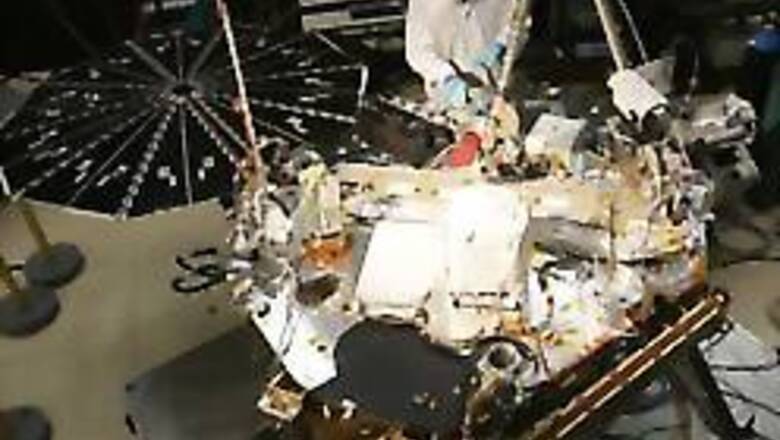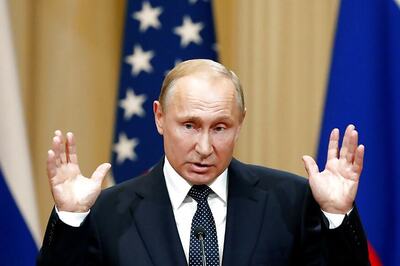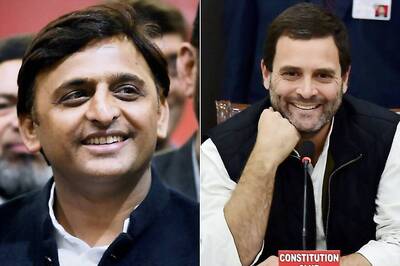
views
Washington: Lockheed Martin Corp, the Pentagon's No 1 supplier, has been told India may be ready to look into possible US-Indian collaboration on ballistic missile defense, a top company official said Wednesday.
"I would not be surprised if over the next couple of months we begin to have some exploratory discussions with various members of the government and with Indian industry," Richard Kirkland, Lockheed Martin's top executive on South Asia, said in a telephone interview with Reuters.
Indian missile-defense cooperation with the United States could complicate relations with China, Russia and Pakistan. Until now, India's policy has been to develop its missile shield domestically, closing a potential multibillion-dollar market to Boeing Co, Lockheed, Raytheon Co and Northrop Grumman Corp — the biggest players in the emerging ground, air, sea and space based US missile defense system.
But this may be changing in line with a "watershed" Indian decision made formal last week to buy Lockheed's C-130J military transport aircraft, Kirkland said in a telephone interview.
India signed a deal with the United States on Jan. 31 to buy six C-130Js worth about $1 billion, a shift from its previous heavy reliance on Russian transport planes.
"This kind of puts us in a new environment," James Clad, deputy assistant US secretary of defense for South and Southeast Asia, said in an interview Tuesday of the C-130J deal.
"With this sale, India is telling us it's ready to buy top-quality US equipment on its merits."
More than 50 US companies doing defense-related work are now represented in India, which is shaping up to be one of the world's biggest arms importers, Clad said.
The United States has been eager to boost strategic ties with India as a precaution against China's growing military power. Nicholas Burns, the No 3 US State Department official, wrote in the November/December issue of the journal Foreign Affairs that that in reaching out to India, the United States was betting on democracy and market economics rather than "despotism and state planning", an apparent swipe at communist-ruled China.
Nathan Hughes, military analyst for Statfor, a private intelligence firm specialized in geopolitics and security, said any major expansion of US-Indian strategic ties would anger archrival Pakistan; Russia, long a key military supplier; and China.
"The United States has lots of things India wants. Russia still provides the defense equipment that India needs," he said. "India just can't turn on a dime."
Kirkland said bolstering India's missile defenses could be done relatively quickly by "blending in", for instance, mobile radar and other sensors or command and control elements.
Washington already has held technical talks with New Delhi on missile-defense capabilities such as Lockheed/Raytheon Patriot Advanced Capability-3 antimissile batteries, said Richard Lehner, a spokesman for the Pentagon's Missile Defense Agency.
Indian embassy officials did not respond to a request for comment.
Kirkland said he was "extraordinarily bullish" on Lockheed Martin's chances to win India's potential $10.2 billion market for 126 multi-role fighter jets.
He called it "the largest single competitive fighter purchase that has been around for 30 years" since a combined European F-16 purchase in the mid 1970s.
Lockheed is tailoring an F-16 Fighting Falcon proposal to meet Indian requirements, including an advanced radar known as active electronically scanned array, he said. Proposals are due on March 3.
Also in the race are Boeing, which is offering its F/A-18 Super Hornet, Russia's MiG-35, France's Dassault Rafale, Sweden's Saab KAS-39 Gripen and the Eurofighter Typhoon, made by a consortium of British, German, Italian and Spanish companies.
Retired Air Force Lt Gen Jeffrey Kohler, until August the Pentagon's top arms-sale official, said the C-130J sale augured well for closer US-Indian defense ties overall.
"I think every sale helps all US companies looking to enter the Indian market," he said. "It helps build trust and confidence."




















Comments
0 comment